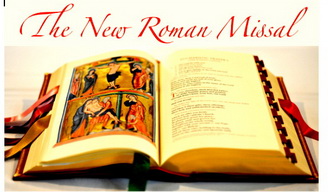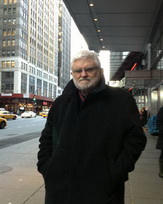The
letter from Gerald O’Collins sj, published recently in the Tablet Journal, has
reignited the debate on the impact of the 2011 translation.
Foreign Secretary Gromyko,
during the years of the
USSR
– Western standoff, is reputed to have told the
US
president during a discussion “But
Mr President, I was there”. He had been around so long that he knew the
detailed background to many conversations.
O’Collins speaks from a
similar position of strength. His Open Letter to the Bishops comes after long
years teaching in
Rome
, in many instances teaching as young men those who are now
Bishops in the English-speaking world. He was in
Rome
during those critical post-Vatican II years and knows well
the geography of the place. His plea that they listen to the needs of their
people is a welcome voice of support for those who during the time since Advent
2011 have been expressing real concern over the text we have been given. Sacral
style is one thing but appreciation of prayer in a language that is reasonable
is something else. Prayer should be a welcome into an open space for listening,
not a struggle to complete an obstacle course through a dense language jungle.
We have an alternative
available in the 1998 text, already agreed by the English speaking bishops until
they rolled over in the face of Vox Clara and accepted the present translation.
O’Collins notes that “You all know that your
Episcopal conferences approved a revised translation completed after 17 years
work by the ICEL” Maybe as a sign of Mercy in the coming designated
year of Mercy, we will be freed from the yoke of language that rather than lead
us to listen to the merciful Lord acts as a barrier on the way. One practical
suggestion I came across on the net was that we should copy the Tablet letter,
which is further strongly supported by the Tablet Editorial this week, and send
it to our diocesan bishops. Just a thought.
Turning
to another matter. It would appear that with the Autumn Synod on the family,
moves are already under way in
England
to put in place a back stop to discussions. Two letters are
in circulation signed by a dozen priests, one of which is shortly to be released
to the press. They reinforce the traditional doctrines of marriage and
sexuality. This coincides with a visit to the
UK
by Cardinal Raymond Burke when he said
any shift in Church teaching on marriage and sexuality was “confused
and erroneous”. Maybe this
is a gathering of like-minded men who are fearful of reality and who just cannot
adjust to a merciful Church that goes beyond the hardened black and white edges
and attends to the needs of a pilgrim people. The link to the Tablet article can
be found at http://www.thetablet.co.uk/news/1857/0/priests-drum-up-support-to-resist-any-change-to-church-teaching
We are now into the start of
the third year of the pontificate of Francis, Bishop of Rome. It has been a
momentous period in the life of the Church. People ask when the tipping point
comes, when the changes that have been introduced, be they organizational or
cultural can no longer be reversed. In some instances that point has already
been passed. Elsewhere, there is still a struggle in process to secure the
foundations of the 21st Century Church.
Let me conclude with a
quotation from Anthony Ruff OSB posted on Pray Tell. After the Papal Mass to
mark the fiftieth anniversary of using the vernacular, Francis reportedly said: “Let
us thank the Lord for what he has done in his Church in these 50 years of
liturgical reform. It was truly a courageous gesture for the Church to draw near
to the people of God so that they are able to understand well what they are
doing. This is important for us, to follow the Mass in this way. It is not
possible to go backwards. We must always go forward.”
Going forward is important;
it is not possible to go back. Maybe we can recover from the stutter on our
journey by picking up the threads of the 1998 text. We are where we are, let’s
move on together in charity.
END
-----

